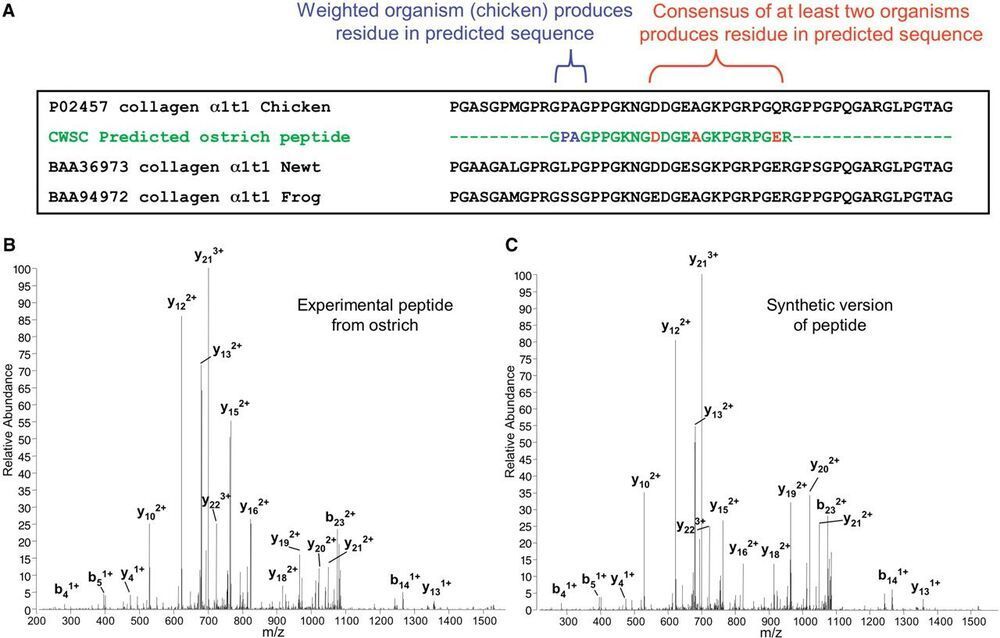Fossilized bones from extinct taxa harbor the potential for obtaining protein or DNA sequences that could reveal evolutionary links to extant species. We used mass spectrometry to obtain protein sequences from bones of a 160000-to 600000-year-old extinct mastodon (Mammut americanum) and a 68-million-year-old dinosaur (Tyrannosaurus rex). The presence of T. rex sequences indicates that their peptide bonds were remarkably stable. Mass spectrometry can thus be used to determine unique sequences from ancient organisms from peptide fragmentation patterns, a valuable tool to study the evolution and adaptation of ancient taxa from which genomic sequences are unlikely to be obtained.
